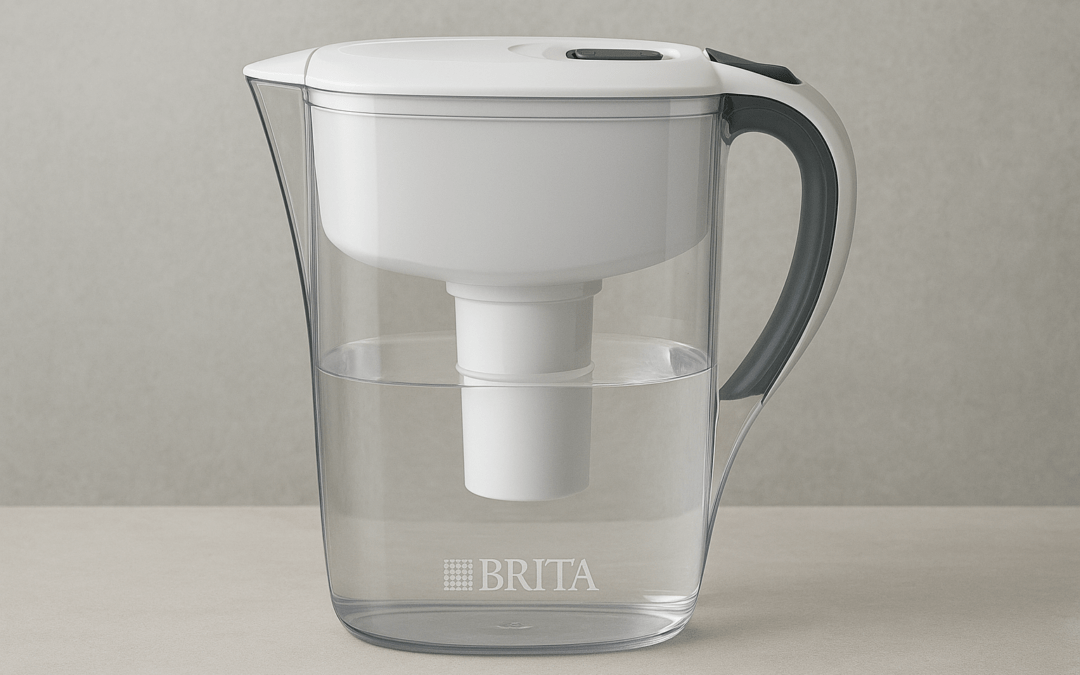When it comes to clean, great-tasting water, Brita is one of the most trusted names in the game. But what does the Brita filter out exactly? And are there things it doesn’t tackle?
If you’ve been curious about what’s happening inside that sleek filter, let’s break it down.
What Does a Brita Water Filter Actually Filter?
Brita filters are designed to improve water quality by targeting specific impurities:
- Chlorine
Chlorine is added to municipal water supplies to disinfect it, but it often leaves an unpleasant taste and odor. Brita filters excel at removing chlorine to deliver fresh-tasting water. - Heavy Metals
Lead, copper, and mercury are common contaminants in older plumbing systems. Brita filters are certified to remove these harmful metals effectively. - Particulate Impurities
Dirt, rust, and sediment from pipes can end up in your glass. Brita filters trap these particles to keep your water clear. - Some Organic Compounds
Pesticides and herbicides can leach into groundwater. Brita filters help reduce these, although they may not eliminate them completely.
What Do Brita Filters Not Remove?
While Brita filters handle many common contaminants, they aren’t a catch-all solution. So, what do Brita filters not remove?
- Bacteria and Viruses
Brita filters aren’t designed to purify water that’s biologically unsafe. If you’re dealing with untreated water, you’ll need a filter with advanced purification capabilities like a UV system or reverse osmosis. - Dissolved Minerals
Minerals like calcium and magnesium that contribute to water hardness generally pass through Brita filters, leaving them intact. - Nitrates and Fluoride
Brita filters don’t effectively remove nitrates or fluoride, which are common in agricultural and municipal water supplies.
What Are the Particles Coming Out of My Brita Filter?
Noticed tiny black flecks in your filtered water? Wondering, What are the particles coming out of my Brita filter? These are likely harmless bits of activated carbon:
- Activated Carbon Basics
The filter’s core material is carbon, which traps contaminants as water passes through. Sometimes, small pieces can escape, especially if the filter wasn’t rinsed before first use.
Fix: Soak and rinse your filter before installing it to prevent this. - When It’s Time to Replace
If particles persist, it could mean the filter is clogged or nearing the end of its life. Replace it as recommended to maintain optimal performance.
What Do Brita Jugs Filter Out?
Brita jugs work just like faucet or pitcher filters, with the same core capabilities. Here’s a quick recap of what Brita jugs filter out:
- Chlorine for Better Taste and Smell
- Lead and Heavy Metals for Safer Drinking Water
- Sediment for Clearer Water
- Some Chemicals for Healthier Hydration
These jugs are portable and convenient, making them ideal for homes, offices, or even road trips.
Why Choose Brita?
Now that we’ve answered what does the Brita filter out, it’s clear they’re an excellent choice for improving your water’s taste and quality. While they might not address every contaminant, they target the most common offenders in household water supplies.
If you’re unsure whether Brita fits your needs, consider testing your water for specific impurities and choosing a filter that matches those results.
Final Thoughts: What Does the Brita Filter Out?
From chlorine to heavy metals, Brita filters make your water taste better and safer to drink. While they don’t remove everything (like bacteria or dissolved minerals), they’re a practical, easy-to-use option for most households.
Stay informed about what’s in your water, and enjoy the confidence of knowing what your Brita filter is doing for you.
Clean water, better hydration, and peace of mind—what’s not to love?

